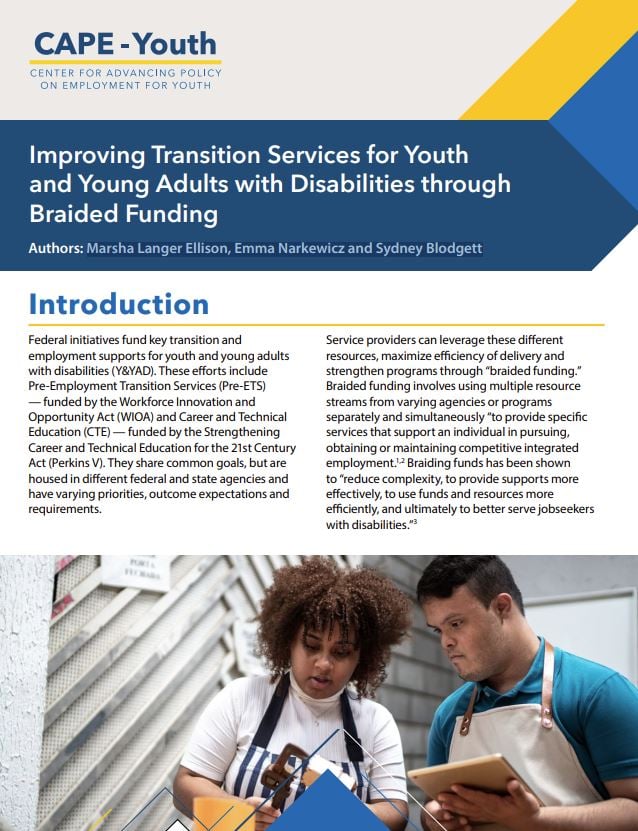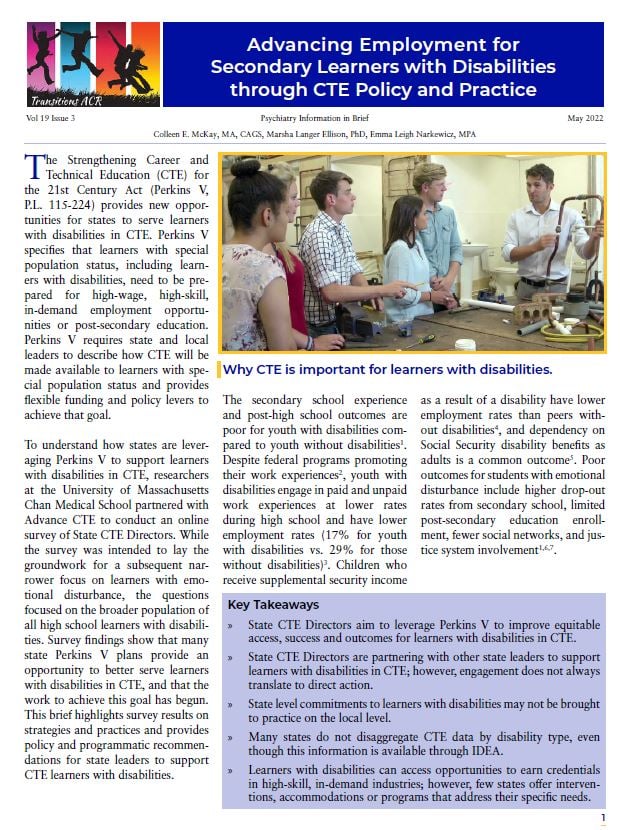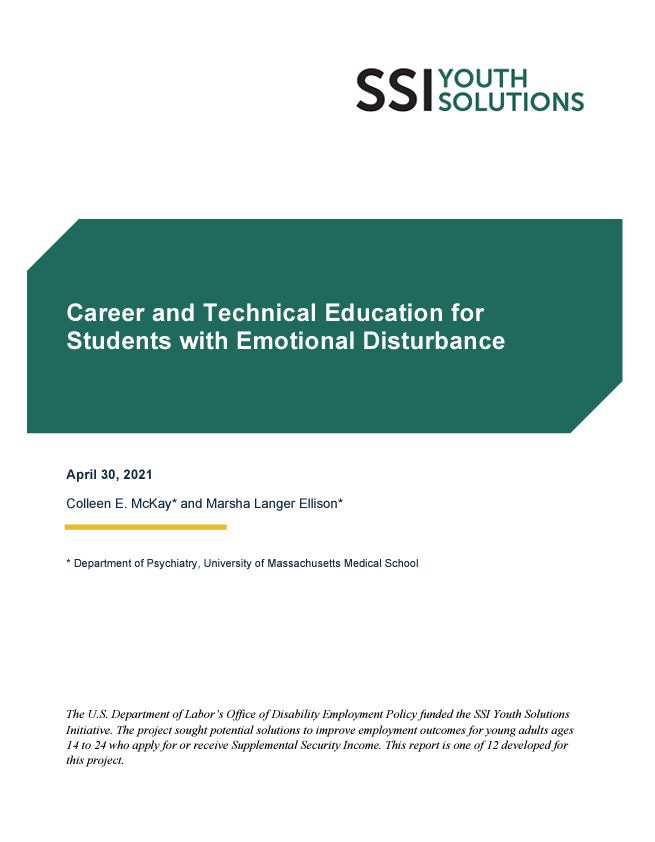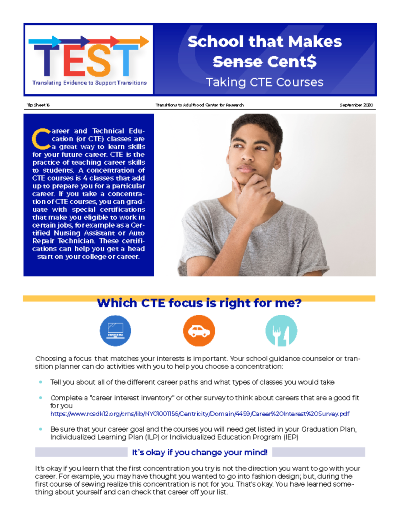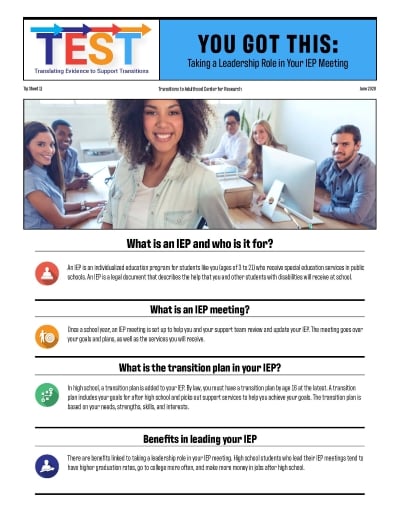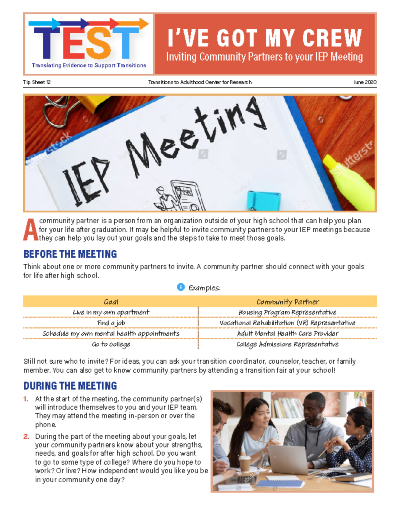Tip Sheets & Issue Briefs
Education
-
Aug 01 2024
![thumbnail of brief]()
-
May 02 2022
![thumbnail of brief]()
Advancing Employment for Secondary Learners with Disabilities through CTE Policy and Practice
By: Colleen E. McKay, Marsha Langer Ellison, Emma L. Narkewicz
-
Oct 15 2021
![thumbnail over CTE brief all text]()
Promoting and Maintaining Career and Technical Education for Students with Disabilities: State strategies developed during the COVID-19 pandemic
By: Colleen E. McKay, Marsha Langer Ellison, Emma L. Narkewicz
-
Jul 27 2021
![thumbnail of tipsheet]()
-
Jul 27 2021
![""]()
Emotional Support Animals: The Basics
By: Anwyn Gatesy-Davis
-
Apr 30 2021
![Thumbnail of report cover]()
Career and Technical Education for Students with Emotional Disturbance
By: Colleen E. McKay, Marsha Langer Ellison
-
Sep 15 2020
![""]()
School that Makes Cent$: Taking CTE Courses
By: Catherine Hogewood Fowler & Morgan Rao
-
Jul 30 2020
![""]()
Should I Attend College in the Fall? Questions for Students with Mental Health Conditions to Consider
By: Michelle G. Mullen & Jean Wnuk
-
Jun 30 2020
![thumbnail of tip sheet]()
You Got This: Taking a Leadership Role in Your IEP Meeting
By: Morgan Rao, Laura Golden, Marsha Langer Ellison
-
Jun 30 2020
![thumbnail of tipsheet]()
I’ve Got My Crew: Inviting Community Partners to Your IEP Meeting
By: Morgan Rao, Laura Golden, Marsha Langer Ellison
-
Apr 21 2020
![thumbnail for college during covid 19]()
Finishing College Classes During COVID-19
By: Michelle G. Mullen, Deirdre G. Logan
-
Feb 28 2020
![""]()
Exploring Age Differences in the Experiences of Academic Supports Among College Students with Mental Health Conditions
By: Kathryn Sabella, Amanda Costa, and Mark Salzer
-
Oct 31 2018
![""]()
Supporting the Educational Goals of Young Adults with Mental Health Conditions
By: Marsha Langer Ellison, Michelle G. Mullen, Deirdre G. Logan
-
Mar 31 2017
![""]()
-
Sep 30 2016
![""]()
What Is a 504 Plan and How Can It Help My Teen?
By: Michael Bryer, Laura Golden, Deirdre G. Logan
-
Apr 30 2015
![""]()
Teens on IEPs: Making My “Transition” Services Work for Me
By: Jennifer Whitney and Lisa Smith
-
Jan 31 2012
![""]()
My Mental Health Rights on Campus
By: Lisa Smith, N. Ackerman, Amanda Costa
-
Mar 31 2011
![""]()
Getting Accommodations at College: Tools for School
By: Amanda Costa

